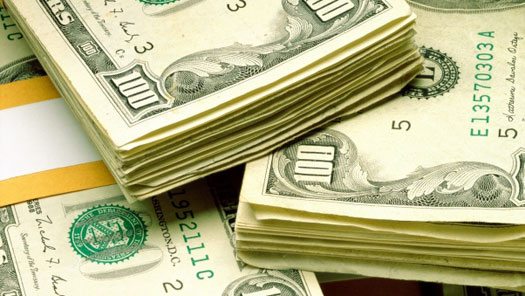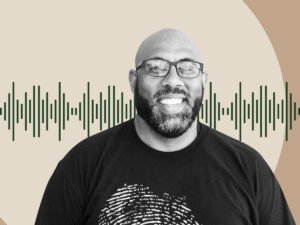
July 10, 2017; This Is Africa
After decades of developing African countries’ endurance of a steady siphoning of resources, revenue, and aid dollars, there appears to be a light at the end of the tunnel. The light comes courtesy of new banking regulations promulgated by Switzerland (and, to a lesser extent, the United Kingdom.) Residents who lived under the thumb of corrupt dictators, so-called leaders, and dishonest public officials now know that money previously held in UK and Swiss numbered accounts will return to their shores.
According to Wycliffe Muga’s article in This Is Africa:
A numbered bank account is a type of bank account where the name of the account holder is kept secret, and they identify themselves to the bank by means of a code word known only by the account holder and a restricted number of bank employees, thus providing account holders with a degree of bank privacy in their financial transactions.
Sign up for our free newsletters
Subscribe to NPQ's newsletters to have our top stories delivered directly to your inbox.
By signing up, you agree to our privacy policy and terms of use, and to receive messages from NPQ and our partners.
Switzerland, an international banking powerhouse, recognized their popularity was not the result of financial acumen but their willingness to turn a blind eye to suspicious transactions. The country made major profits but their reputation suffered. According to an ambassador, “Switzerland would no longer be a safe haven for the corrupt.” It began in the ’80s with laws to curtail money laundering, particularly drug money. New regulations include a slate of banking laws entitled, “Making Sure Crime Doesn’t Pay: Repatriating the Proceeds of Crimes,” which now mandate that illicit assets or state funds acquired by heads of state or Politically Exposed Persons (PEPs) be identified returned to their country of origin. The “identified” is key, as it requires banks to look for such accounts. Swiss banks and all other financial service providers identify the contracting party and economic beneficiary, report all suspicious transactions and block immediately any account where there is suspicion of money laundering.
These policies were not enacted overnight, but represent the work of over a decade of Swiss negotiations with banks, financial intermediaries, and countries where money disappeared. The affected countries include developing African and Third World countries once ruled by dictators. In one of the more shameful pages of the African continent’s history, dictators developed corruption into a high art and were aided and abetted by Western banking institutions. This shrewdness in hiding money resulted in Switzerland’s identification of only $4 million.
The revised solution was the regulation above, which over time has produced the following determinations:
- Philippines: In the end of the 1990s, the Swiss Federal Supreme Court determined that the assets held by the Marcos foundations were of criminal origin, and the Court ordered their transfer to escrow accounts in the Philippines. An enforceable judgment by a Philippine Court finally brought the mutual legal assistance procedure to an end and the restituted USD $684 million could be used to compensate victims of human rights violations under the Marcos regime.
- Nigeria: In 2005, the Swiss Federal Supreme Court ruled that Sani Abacha’s assets frozen in Switzerland were of criminal origin and could be restituted to Nigeria even though the country had not issued a forfeiture order (advanced restitution). Switzerland and Nigeria agreed that the use of the assets (USD $700 million) would be monitored by the World Bank.
- During the Arab uprisings of 2011, the Swiss government immediately took proactive measures and ordered the freezing of assets of the former rulers involved and their entourages without waiting for requests for mutual legal assistance from the countries in question. Lacking a specific legal basis to do so, this was undertaken as an emergency measure based on the government’s constitutional right to safeguard Switzerland’s interests.
- Kenya’s President Daniel arap Moi and his successor, President Mwai Kibaki, were involved in alleged “ghost contracts.” However, in Kenya, the corruption was carried out by high-level public officials. Anglo Leasing, a decades-long scandal involving multiple government sectors and one family, is alleged to have stripped more than $700M from Kenyan coffers. The full amount has yet to be recovered, as only $2M was found in Swiss banks.
The advent of the Swiss regulations and local reforms have forced officials to engage in increasingly desperate clandestine behavior to hide their stolen spoils. In 2016, because of an agreement signed by Kenya and the UK, more than Sh380 million confiscated in the UK were returned to Kenya. In conjunction with this international agreement, the Kenyan Central Bank developed its own enhanced policies that cracked down on deposits of large sums of money. The handwriting was on the wall.
With offshore options unavailable and local avenues closing, things fell apart with almost comical results. In May of this year, Kenyans were shocked when close to $200,000 was found in an official’s home. Residents are excited as the return of their money will provide much needed funds for economic development and infrastructure projects. The hope is that Switzerland’s ongoing research into other accounts will unearth additional monies to support these efforts.— Mary Frances Mitchner













